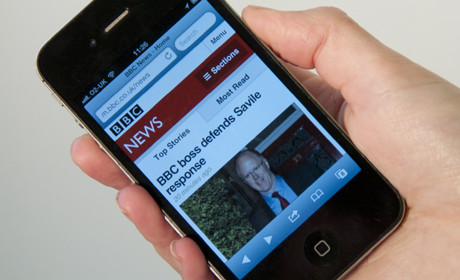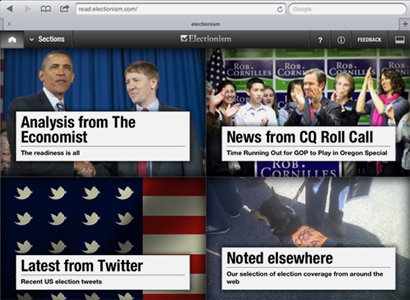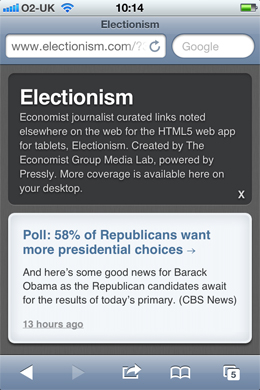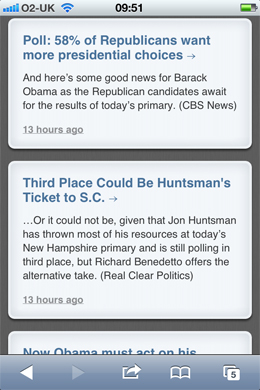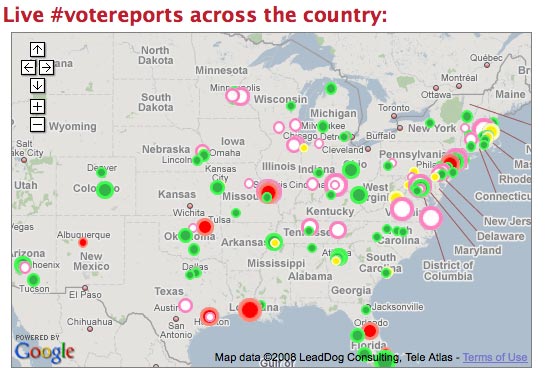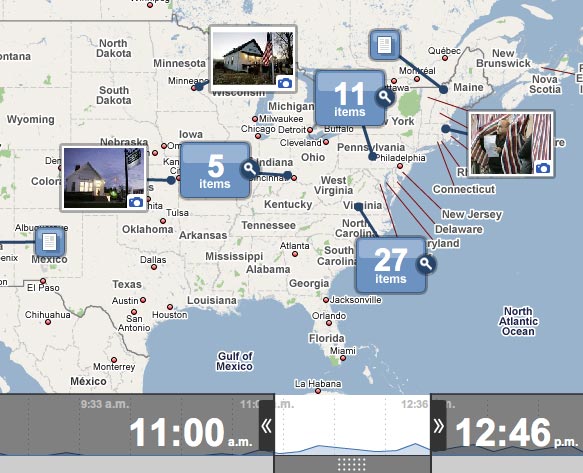So it doesn’t need saying that US Election 2008 took place in a very different media climate from the one experienced in 2004: just take a look at CNN à la 2004, and CNN right now.
It’s hard to actually think back and remember that four years ago the focus for many of this year’s online followers was still on the TV screen.
Last night we followed live-streams. We Twittered. We traced maps. We enjoyed striking homepage designs as the results came in.
This was the year for multimedia to really come into its own. The public outside the electoral college had a chance to participate from afar. Many bloggers might not have had a vote, but they could be influential: by spreading round a Sarah Palin debate flow-chart, casting a vote on a remote voting map, or putting a supporting button onto their sites (the online version of the rosette).
MercuryNews.com gave these, as the ninth and tenth reasons for McCain’s defeat:
9. “The Internet. Obama broke an earlier pledge and opted out of public financing, allowing him to raise at least $200 million in September and October, in millions of donations averaging $86. He raised more than twice as much money as McCain, and was able to pay for staff and ads in states and in numbers that McCain could only dream about. His 30-minute infomercial six days before the election drew more than 34 million viewers — more people than watched the finale of ‘American Idol’ last year or the final game of the World Series.”
10. “Better ground game. Obama mobilized young people and used technology, from text messages to internet meet-ups, in ways that built the first truly 21st century campaign. It might have brought guffaws at the GOP Convention, but it turns out that being a ‘community organizer’ is a good skill to have when running a presidential campaign.”
Obama’s campaign page thanks the various efforts of his internet supporters, links to his mobile content, and shows where you can find ‘Obama everywhere’:
And what about the negative effect for McCain? You may have your reservations about this story, but Fox News reported in July how McCain supporters could have been hijacked through spam reports to Google Blogger, prompting a Republican blogger move over to WordPress.
Renee Feltz, over at the Columbia Journalism Review, looks in detail at whether McCain was ‘blogged down in the past’ with ‘top-down internet tactics’, which left him unable to keep up with Obama’s social networking strategy.
This diagram shows the online blog cluster:

(screenshot, courtesy of Morningside Analytics via CJR)
Feltz describes how the map “shows a ‘halo’ of about 500 relatively new blogs in two isolated clusters. One cluster includes several hundred anti-Obama blogs (orange) and the other contains several hundred pro-McCain and pro-Palin blogs (green).”
Their isolation shows that they are not well-connected to political blogs with the longer histories, a point which John Kelly, Morningside’s chief scientist and an affiliate of the Berkman Center, explains on the CJR post.
Please do add your own Obama bloggin’ thoughts here. Was is the blogs, and which ones, which gave Obama strength? And what should we expect on the multimedia horizon for 2012?
